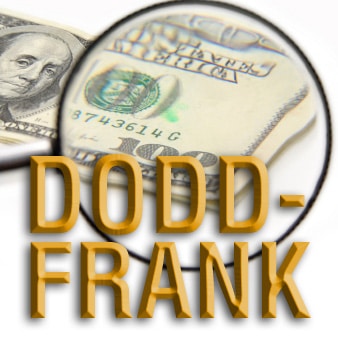Later this week, the House of Representatives is set to vote on the Financial CHOICE Act. Congressman Jeb Hensarling (R – TX), Chair of the House Financial Services Committee, designed and championed this bill. The CHOICE Act will repeal major parts of the Dodd-Frank Wall Street Reform and Consumer Financial Protection Act, and deregulate U.S. financial markets. The bill also advances a toxic anti-whistleblower policy (Section 828), which would undermine the U.S. Securities and Exchange Commission’s (SEC) highly successful whistleblower program—incapacitating the most effective tool to rein in misconduct and criminal activity on Wall Street.
Section 828 of the Financial Choice Act advances a policy that purports to exclude opportunistic individuals from the Securities and Exchange Act’s (SEA) whistleblower reward provisions if they are “culpable” for the violation they are reporting. Not only is this amendment unnecessary, it would undermine the SEA’s highly successful whistleblower law. Section 828 of the proposed bill prohibits the SEC from issuing an award:
“To any whistleblower who is responsible for, or complicit in, the violation of the securities laws for which the whistleblower provided information to the Commission.”
This policy may seem reasonable at first glance, but the policy addresses a problem that does not actually exist and, in doing so, creates much more serious challenges for the SEC Whistleblower program. First, the SEC already has a rule excluding “culpable” whistleblowers from receiving awards. Specifically, a whistleblower who “directed, planned, or initiated” (See SEC Rule 21F-16) the criminal conduct is not eligible for a reward. However, the SEC does allow “mere participants” to blow the whistle and potentially receive rewards. This distinction is critical: The best source of information is an “insider” who can be incentivized to report misconduct; prohibiting “mere participants” (employees tangentially involved but not responsible for actually “planning” the crime) from accessing the whistleblower program would seriously diminish the SEC’s ability to detect securities violations.
Whistleblowers in this precarious position are extremely common. Often they are employees who are instructed by their superiors to break the law and, fearing being fired, they do as they are instructed. Eventually, some of these individuals garner the courage to speak up and alert the authorities to stop the corruption. Often, this decision comes at an enormous personal cost.
Section 828 would detrimentally exclude those insiders who have the most direct access to information—those who are minor participants in the illicit scheme, but who could potentially be “flipped” into turning in the criminal masterminds given the incentive of a reward.
National Whistleblower Center (NWC) Executive Director Stephen Kohn emphasized, “We need to do everything we can to incentivize and protect these whistleblowers. They are exactly the type of insiders with high-quality information that a whistleblower program is designed to work with. Section 828 directly undermines the SEC’s ability to help whistleblowers and combat corruption and fraud on Wall Street.”
For more detailed analysis, please read NWC Executive Director Stephen M. Kohn’s testimony before the House Financial Services Committee.
Important Links:
